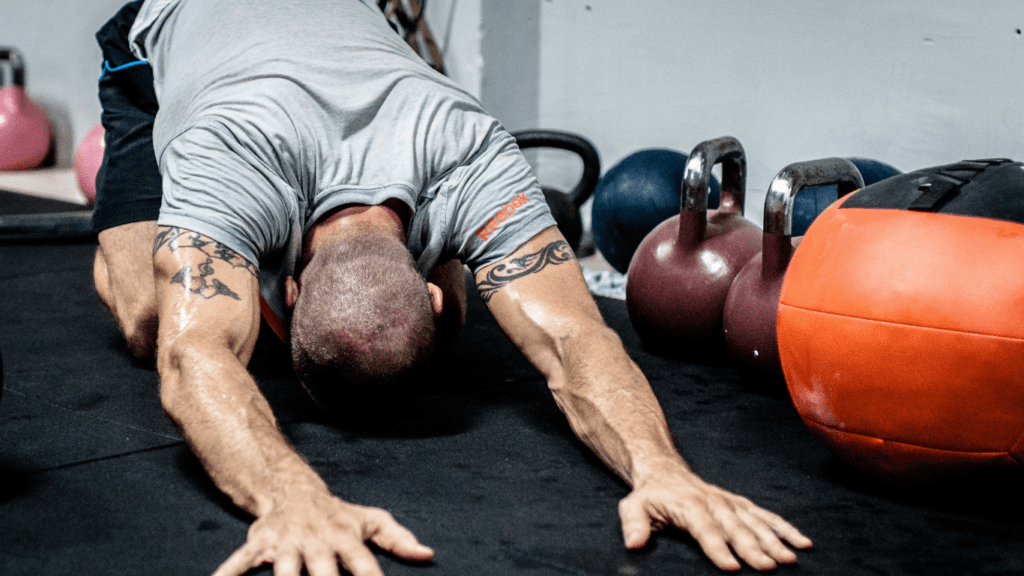Understanding the Connection Between Nutrition and Fitness
Nutrition directly influences fitness outcomes by affecting energy levels and muscle repair. Nutrients, such as carbohydrates, supply the body with essential fuel during workouts, resulting in improved performance. Without adequate carbohydrate intake, energy dips can hinder workout intensity and duration.
Protein plays a vital role in muscle repair and growth. Consuming sufficient protein after exercise aids recovery by offering the necessary amino acids to rebuild muscle tissue. This process optimizes strength gains and supports lean muscle retention.
Healthy fats contribute to endurance and joint health. They provide a longer-lasting energy source and aid in nutrient absorption. Including omega-3 fatty acids in the diet reduces inflammation, enhancing recovery and supporting cardiovascular health.
Hydration is crucial for peak performance. Even mild dehydration can impair strength and endurance. Consuming fluids before, during, and after workouts maintains performance levels and facilitates temperature regulation.
Micronutrients, such as vitamins and minerals, support various bodily functions that impact fitness. For example, calcium and vitamin D contribute to bone health, while iron is necessary for oxygen transport during exercise. Without these nutrients, sustaining an active lifestyle becomes challenging.
By integrating these nutrient considerations, fitness results improve substantially. Understanding the connection between nutrition and fitness empowers individuals to make informed dietary choices that support their physical goals.
Key Nutritional Components for Optimal Fitness
Nutrition plays an essential role in achieving optimal fitness results. It provides the necessary fuel and building blocks for the body to perform, recover, and grow.
Macronutrients: Proteins, Carbs, and Fats
Proteins, carbs, and fats are the primary macronutrients essential for fitness. Proteins, like chicken and tofu, support muscle repair and growth. Carbs provide energy, making oatmeal and brown rice great pre-workout choices. Fats, found in avocados and nuts, aid in endurance and joint health. Balancing these nutrients supports diverse fitness goals.
The Importance of Micronutrients
Micronutrients, though required in smaller amounts, greatly influence fitness. Calcium strengthens bones, while vitamin D enhances calcium absorption. Iron’s critical for oxygen transport, vital for energy production during workouts. Including:
- leafy greens
- dairy products
- lean meats
in meals ensures adequate micronutrient intake.
Hydration and its Impact on Performance
Adequate hydration is crucial for peak physical performance. Water regulates body temperature and lubricates joints. Dehydration can lead to fatigue and impaired performance. Drinking water consistently, especially before and after exercise, helps maintain optimal hydration levels.
Timing Your Nutrition for Maximum Results

Strategically timing nutrition maximizes fitness results by enhancing performance and recovery. Timing plays a vital role in energy management and muscle repair.
Pre-Workout Nutrition
Consuming the right nutrients before exercise boosts performance. Eating carbohydrates 1-3 hours before a workout provides energy, improving endurance. Quick-digesting options like bananas or oatmeal are ideal. Including protein supports muscle maintenance. A small serving of yogurt or a protein shake works well.
Post-Workout Recovery
Post-exercise nutrition focuses on recovery and muscle growth. Consuming protein within 30-60 minutes accelerates muscle repair. Opt for lean proteins such as chicken or plant-based options like lentils. Combining protein with carbohydrates replenishes glycogen stores, aiding recovery. A balanced meal or smoothie with fruit and protein powder can be effective.
Common Nutrition Myths in Fitness
Many myths circulate within fitness nutrition, impacting how people approach their diets. I’ve identified several prevalent misconceptions that may hinder progress toward fitness goals.
- Carbs Cause Weight Gain: This myth suggests that carbohydrates inherently lead to weight gain. Carbs serve as the primary energy source, particularly during workouts. Weight gain results from a calorie surplus, not carb intake alone.
- Protein Shakes Are Essential: Some believe protein shakes are crucial for muscle growth. While convenient, protein needs can be met through whole foods. It’s about total daily intake rather than any single source.
- Fats Should Be Avoided: The misconception that all fats are detrimental ignores their role in hormone production and joint health. Healthy fats, like those from avocados and nuts, support endurance and overall well-being.
- Supplements Replace Whole Foods: Supplements often seem like shortcuts to nutrition, yet they can’t replace the variety of nutrients in whole foods. I prioritize a balanced diet over reliance on supplements.
- Eating After 8 PM Causes Weight Gain: The idea that late-night eating exclusively leads to weight gain misses the bigger picture. Total caloric intake and daily activity levels play more substantial roles than timing alone.
These misconceptions may deter optimal nutrition strategies. By focusing on evidence-based practices, better fitness results become more achievable.
Practical Tips for Integrating Nutrition into Your Fitness Routine
Meal prepping simplifies the process of maintaining a balanced diet. I prepare meals in advance to avoid impulsive eating and ensure I’m consuming the right nutrients consistently. By planning weekly menus, I focus on essential components like proteins, carbohydrates, and fats.
Smart snacking supports sustained energy levels throughout the day. I choose nutrient-dense options like nuts, fruits, and yogurt. These snacks provide an energy boost without excessive calories, helping maintain productivity and workout performance.
Hydration status directly impacts overall fitness. I carry a water bottle everywhere to stay hydrated, especially during workouts and throughout the day. Consistent water intake aids in recovering from exercise and helps regulate body temperature.
Macro balancing is crucial for optimal energy and recovery. I balance each meal with proteins, carbohydrates, and healthy fats. For instance, a post-workout meal might include grilled chicken, quinoa, and avocado to replenish glycogen and promote muscle repair.
Tracking progress ensures alignment with fitness goals. I use apps or journals to monitor calorie intake and macronutrient distribution. This method helps me make adjustments as needed, ensuring my diet supports my evolving fitness objectives.



 Senior Sports Writer
Alfred Alder is the senior sports writer at Sprint Scoop News, bringing his extensive knowledge of fitness, training, and sports business to the forefront. With a career spanning more than a decade, Alfred specializes in delivering high-quality, engaging content that covers everything from sponsorship trends to the latest in health and nutrition for athletes. His deep understanding of the sports industry allows him to provide readers with comprehensive insights that make complex topics accessible and exciting.
Senior Sports Writer
Alfred Alder is the senior sports writer at Sprint Scoop News, bringing his extensive knowledge of fitness, training, and sports business to the forefront. With a career spanning more than a decade, Alfred specializes in delivering high-quality, engaging content that covers everything from sponsorship trends to the latest in health and nutrition for athletes. His deep understanding of the sports industry allows him to provide readers with comprehensive insights that make complex topics accessible and exciting.
